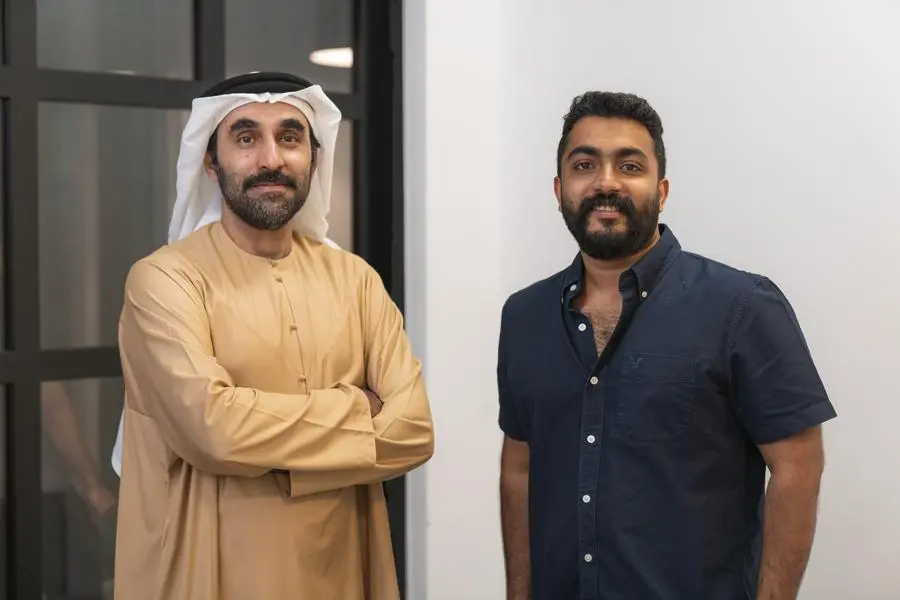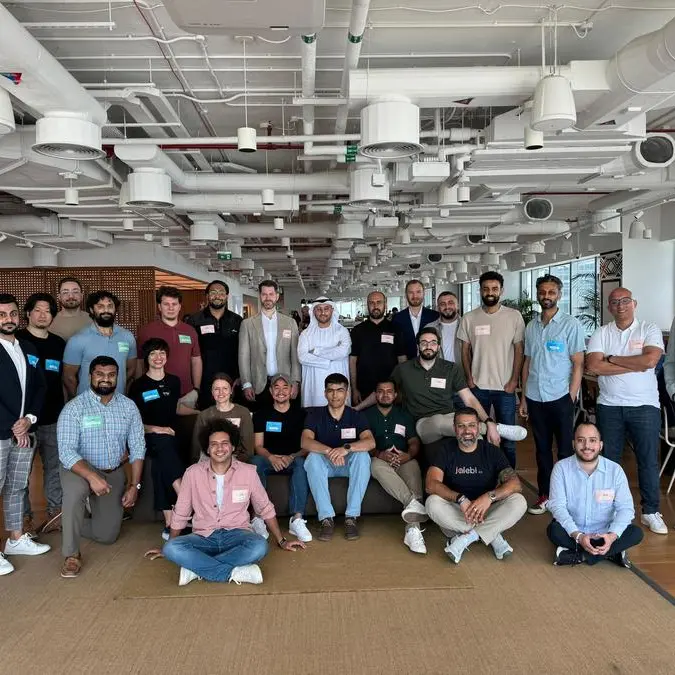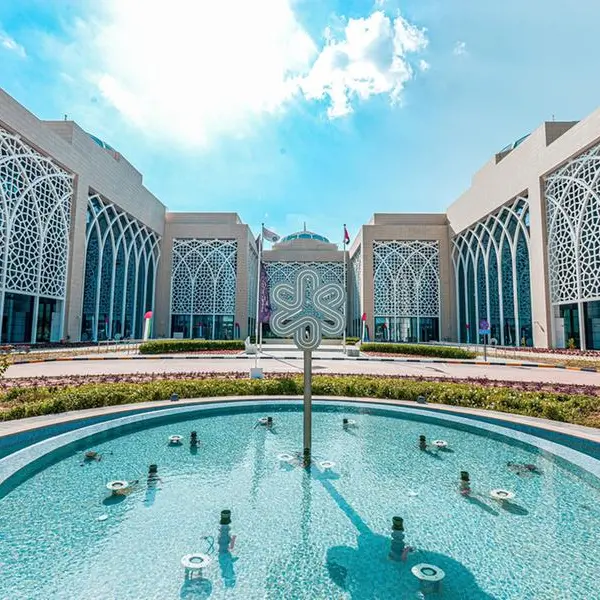PHOTO
The cascading impact of climate change is affecting the Middle East and North Africa (MENA) region, which is already “water stressed”. As such, the UAE Water Security Strategy 2036 aims to ensure sustainable and continuous access to water at all times.
Supporting this vision is the UAE-based deep tech startup Manhat, launched by co-founders Saeed Alhassan Alkhazraji and Vishnu Vijayan Pillai. Manhat’s proprietary technology facilitates waste-free water desalination using solar energy, thereby enabling water production, transportation, and irrigation of crops.
Can the solution drive water and food security in the desert? Alkhazraji certainly seems to think so.
“Our floating farm solution has the potential to drive a paradigm shift in the region by ensuring food and water self-sufficiency while tackling climate change,” he says.
At a time when 71% of the earth’s surface is covered by water and the sea level is rising, Manhat's natural water distillation solution promises to benefit islands, coastal countries, and cities facing the threat of rising sea levels, Alkhazraji explains. “As water evaporates from the ocean, Manhat’s greenhouse-like floating farm structures use solar energy to heat the water causing evaporation. Then the water condenses and gets collected in the floating farms that can be used to irrigate crops.
“The idea is to showcase that our technology can be used to grow crops in a floating farm which can then be scaled up to generate revenues by selling locally-grown produce,” adds Alkhazraji.
The professor-turned-entrepreneur is keen to start with mushrooms that grow quickly and don’t require much water in comparison to crops such as rice.
“But the ultimate challenge is to grow crops such as wheat and rice, as well as alpha alfalfa for cattle, thereby strengthening food security in the region.”
Manhat has already deployed prototypes for water production in locations including Abu Dhabi Ports, Aldar Properties’ Al Reem Islands, and Alkhazraji’s farms in the UAE capital.
FUNDING THE PILOT PROJECT
While continuing to work on enhancing water production, the next big step is to embark on a pilot project to systematically test the ability of the floating farm solutions to grow commercial crops. Funding, however, is crucial to deploy pilot projects of this scale for which Manhat must secure “$1 million in seed funding”.
“The success of deep tech concepts lies in the creation of a commercially viable product,” Alkhazraji continues. “Usually, grants bridge the gap between building a prototype to creating a product that will sell.”
Manhat has received financial support of $50,000 through subsidised patent application fees via a programme under the Abu Dhabi Department of Economic Development. It has also received an in-kind contribution worth $80,000 from Abu Dhabi Ports as part of prototype collaboration, coupled with cash prize worth $13,000, and a promised grant of $18,000 to kickstart the pilot project.
However, the funding gap is a reality for deep tech startups that take time to build and show scalability.
“Securing funding is often a challenge as venture capitalists look for potential revenue generation capability which is difficult to showcase through prototypes, Alkhazraji says, likening it to the development of the mRNA vaccine for COVID-19 that was patented around 2010 but tested at scale only over the past couple of years.
“Venture capitalists aren’t willing to patiently wait for a decade to get returns from their investment.”
A “FRAGMENTED” ECOSYSTEM
Asked if the UAE ecosystem is equipped to support deep tech startups like Manhat, Alkhazraji said: “It’s fragmented,” adding that the appetite to invest in existing technologies is higher than putting money into a new technology yet to be tested.
“A lot of UAE-based universities are developing interesting technologies, but there are limited local businesses to take these to market,” he says. “There is a lack of awareness [around] the scale of developments happening in the UAE.
“A fragmented ecosystem also hinders collaboration between researchers/academia, startups, incubators/accelerators and investors. This needs to change.”
Having said that, interest in deep tech concepts is growing, Alkhazraji admits. Research and development initiatives by deep tech startups are becoming more competitive due to support in the form of grants.
“But a constant reminder is crucial for deep tech startups like Manhat to push forward in developing technologies that can secure the region’s future,” he concludes.
(Writing by Rupkatha Bhowmick; editing by Seban Scaria seban.scaria@lseg.com)





















